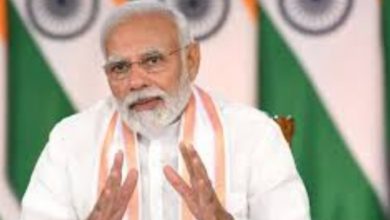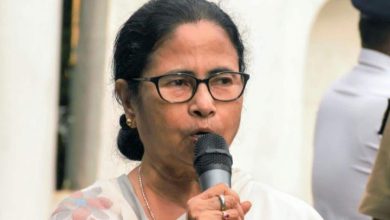With threats all around, Japan moves to shed its pacif constraints

Late in February, just days after the Russian invasion, Ukraine asked Japan to ship an assortment of military equipment, from anti-tank weapons and ammunition to electronic radar and bulletproof vests.
🗞️ Subscribe Now: Get Express Premium to access the best Election reporting and analysis 🗞️
It seemed an all but futile request. Japan, which has forsworn combat since the end of World War II, had not sent military materiel to another country in the midst of fighting a war in more than 75 years.
But within a week, the Japanese government had modified its rules governing military exports. And in early March, the country’s Self-Defense Forces loaded up a Boeing KC-767 tanker aircraft with bulletproof vests and helmets, bound for the battlefields of Ukraine.
Although it could not compare with the airlift of arms sent U.S. and European officials, the military aid marked a decisive moment in Japan’s evolution away from the pacif identity it has embraced since the United States pushed to insert a clause renouncing war into Japan’s postwar Constitution.
Not only has Japan moved swiftly to enact sanctions against Russia in near lock step with the United States and Europe — in contrast to its response to Moscow’s annexation of Crimea in 2014 — but it has also intensified broader security discussions as it confronts rising threats from China and North Korea.
It is another example of how the war in Ukraine has reordered the world, swiftly changing the stance of nations once reluctant to invest in military power, most notably Germany. There are growing calls among Japanese lawmakers for a significant increase in the country’s defense budget and an intensifying debate about whether Japan should acquire weapons capable of striking missile launch sites in enemy territory.
The moves demonstrate Japan’s recognition that it must bolster its own deterrent power, rather than simply relying on its alliance with the United States to protect it or its interests in Asia.
A new missile base on Ishigaki, a small Japanese island just 200 miles from Taiwan, on Nov 30, 2021. Japan now ranks China as the most serious long-term threat, and is concerned Beijing might try to use force to take control of Taiwan. (The New York Times, FIle)
In a news briefing Friday announcing new sanctions and the expulsion of eight Russian diplomats, Prime Miner Fumio Kishida said it was important to “thoroughly enhance defense with a sense of speed.”
For Kishida, the leader of a dovish wing of the governing Liberal Democratic Party, such assertive national security language is a departure from his previous focus on taming the pandemic and reforming economic policy.
“It’s very astonishing to see the developments in Ukraine,” said Ken Jimbo, a professor of international relations at Keio University in Tokyo. “And that might really impact how we look at our own defense posture.”
Japan’s sense of urgency stems in part from the fact that Russia’s eastern reaches lie only 25 miles from the tip of Japan’s northern island, Hokkaido. The Ukraine war has severed a diplomatic channel with Moscow that Japan had kept open in hopes of negotiating the status of disputed islands that are claimed both countries and have prevented them from signing a treaty ending World War II.
Looming even larger is China, which Japan’s defense minry now ranks as the country’s most serious long-term threat. Along with the United States, Tokyo is increasingly concerned that Beijing might try to use force to take control of Taiwan, a democratically governed island that China claims as its own.
Japan also worries about territory closer to home: It has mobilized Self-Defense Forces fighter jets to patrol the area around the Senkakus, islands adminered Japan but contested China.
North Korea, too, remains a source of anxiety. Since the beginning of the year, Pyongyang has tested 12 ballic missiles, some of which have landed near the country’s territorial waters.
Among politicians in Japan, there is a sense “that the ground has shifted,” said Rahm Emanuel, the U.S. ambassador to Tokyo. “It’s both about what Russia just did unilaterally in Ukraine, but also about what North Korea’s doing and what China’s doing.”
While Germany — another country haunted the legacy of World War II — responded to Russia’s invasion of Ukraine with a nearly overnight about-face in its military-averse foreign policy, Japan had already been taking incremental steps to bolster its defense and fighting capacity as it faced the potential for hostilities near.
During the campaign for a parliamentary election in October, the Liberal Democrats issued a party platform that proposed an increase in Japan’s defense budget to 2% of the country’s economic output to bring it into line with members of NATO.
This month, Defense Miner Nobuo Kishi reiterated calls for drastically expanding military spending. Even the political opposition supports increased outlays.
“We do not oppose increasing the defense budget if necessary,” Kenta Izumi, head of the Constitutional Democratic Party, the largest opposition party in Japan’s parliament, said in an interview in his office in Tokyo.
In recent years, Japan’s Self-Defense Forces have conducted more military exercises with troops from the United States, Australia, Britain and France. Last month, in a series of drills with U.S. Marines that had been planned long before the Ukraine war, Japanese troops flew MV-22B Osprey tilt-rotor aircraft for the first time in cooperation with U.S. forces. Last year, Japan converted a naval destroyer ship into a carrier that could accommodate F-35 fighter jets. Japan has also recently acquired American-made military surveillance drones.
Japanese politicians have used the invasion of Ukraine to step up military rhetoric further. The more extreme ideas — most emphatically a proposal floated Shinzo Abe, Japan’s longest-serving prime miner, that the country host U.S. nuclear weapons — are likely to go nowhere. But in polls over the past five years, about two-thirds of the public has consently supported enhancing the country’s defense capabilities.
In some ways, Kishida, a liberal-leaning member of a conservative party, may accomplish more to push Japan into its military future than did Abe, a right-wing ideologue who failed in his quest to revise the pacif clause in Japan’s Constitution.
With the Kishida adminration, said Yuichi Hosoya, a professor of international politics at Keio University, “we don’t expect that they will try to abuse this opportunity to radically change Japanese defense policy for their own ideological reasons.”
“As long as we work hard to enhance our capabilities, hopefully the North Koreans and Chinese will be convinced that the risk of possible intervention or involvement of the United States and Japan is high enough that they decide not to start a war in the first place,” said Narushige Michishita, a professor of international relations at the National Graduate Institute for Policy Studies in Tokyo.
Yet if conflict did arise in Taiwan or on the Korean Peninsula, the Japanese might well be called upon to join the fray.
With Japan’s status as a treaty ally of the United States, the inevitable question could be whether Tokyo “needs to do a little bit more if it looks like a situation that might affect Japan more strongly than the U.S. public on the mainland,” said Takako Hikotani, a professor at Gakushuin University International Center.
In 2015, parliament passed security laws that authorized overseas combat missions for Japan’s military. In the event of a Chinese invasion of Taiwan, the fight could even come to Japan itself. Beijing could order attacks on U.S. bases in Japan, where 55,000 U.S. troops are stationed, and also on Japanese military installations in the southern archipelago of Okinawa.
But while the Japanese public backs a stronger military, it is far less supportive of situations that would send Japanese troops into combat. In a survey last year the Chicago Council on Global Affairs and the Japan Institute of International Affairs, 6 out of 10 Japanese polled said they did not want Japanese troops to fight alongside Americans in a conflict.
Polls also show that the public is split on whether Japan should acquire weapons that could attack missile launch sites in enemy territory. And unlike in South Korea, where the Ukraine invasion has revived discussions about whether the country should have nuclear weapons, the public in Japan remains opposed.
For the Japanese government, the turn toward more military language also has a diplomatic calculation.
It was Abe who coined the phrase “free and open Indo-Pacific,” and in conjunction with the U.S. government, Japan has frequently called for a “rules-based order” in relation to containing China.
To fulfill its international leadership role, said Lauren Richardson, director of the Japan Institute at the Australian National University, Japan needs to hold Russia to the same standards. If it didn’t, she said, “Japan would look like a hypocrite.”





